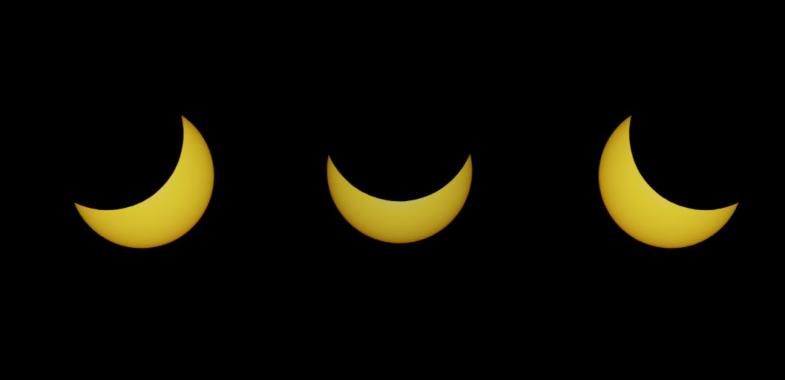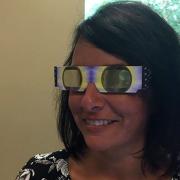
How To Safely Take Part In This Month’s Solar Eclipse
The upcoming solar eclipse, on August 21st, has everyone buzzing. This amazing event will be an unforgettable experience for all who participate. However, for those who don’t view the eclipse safely, the event will have a lasting effect on their vision. Damage to your eyes can occur after staring at the sun for even a short period of time if you are not wearing the right eye protection. Unprotected viewing can cause permanent damage to your retina.
Dr. Ahmed El-Sanhouri, L.O. Eye Care Retina Specialist, explains the damage that can occur to your retina from looking directly at the sun. “The retina is a layer at the back of your eyeball containing cells which focus light rays into impulses that travel down the optic nerve and into your brain. The brain then translates the impulses into images you see. Having a healthy retina is vital to clear vision. The condition known as Solar Retinopathy, occurs when the sun’s bright light over stimulates the retina and destroys the cells that transmit impulses to your brain. Depending on the severity of the damage, your vision may return to normal over time or if too extensive, you may have long-term vision loss.”
So, how do you safely take part in the upcoming solar eclipse? The American Academy of Ophthalmology offers these tips:
- Carefully look at your solar filter or eclipse glasses before using them. If you see any scratches or damage, do not use them.
- Always read and follow all directions that come with the solar filter or eclipse glasses. Help children to be sure they use handheld solar viewers and eclipse glasses correctly.

- Before looking up at the bright sun, stand still and cover your eyes with your eclipse glasses or solar viewer. After glancing at the sun, turn away and remove your filter—do not remove it while looking at the sun.
- The only time that you can look at the sun without a solar viewer is during a total eclipse. When the moon completely covers the sun’s bright face and it suddenly gets dark, you can remove your solar filter to watch this unique experience. Then, as soon as the bright sun begins to reappear very slightly, immediately use your solar viewer again to watch the remaining partial phase of the eclipse.
- Never look at the uneclipsed or partially eclipsed sun through an unfiltered camera, telescope, binoculars or other similar devices. This is important even if you are wearing eclipse glasses or holding a solar viewer at the same time. The intense solar rays coming through these devices will damage the solar filter and your eyes.
- Talk with an expert astronomer if you want to use a special solar filter with a camera, a telescope, binoculars or any other optical device.